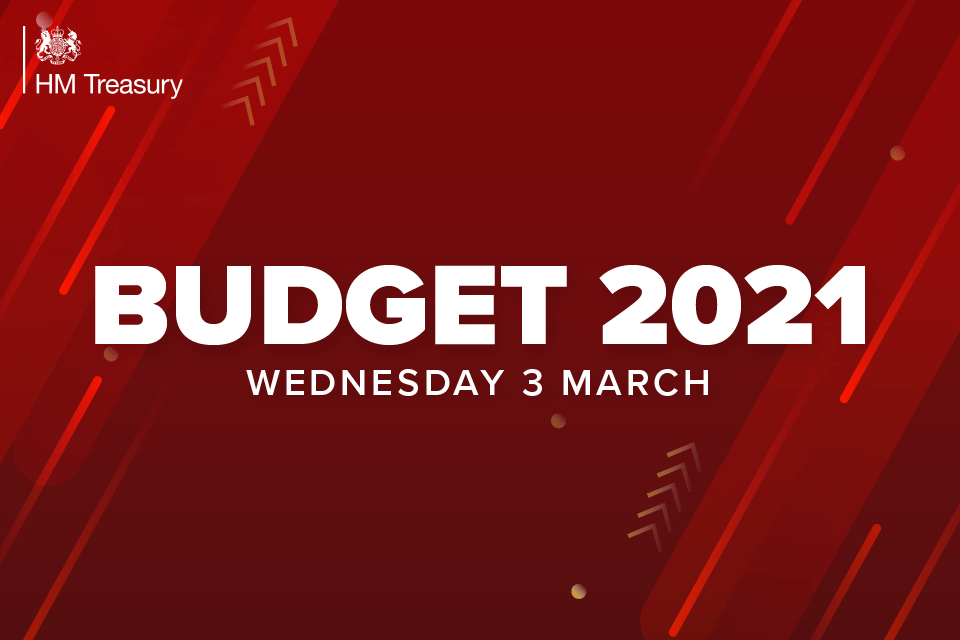On Wednesday 3 March 2021, Chancellor Rishi Sunak delivered the 2021 Budget. Here is our summary of the key points.
Furlough scheme
The furlough scheme which was originally planned to end on 30 April 2021, will be extended until the end of September 2021. Employees will continue to receive 80% of salary for the hours they do not work. From July 2021, employers will be expected to contribute 10% of salary for those hours and this will increase to 20% in August and September 2021.
Support for the self-employed
The Chancellor has announced further support with a major extension to the Self-Employment Income Support Scheme (SEISS). The fourth SEISS grant will now be worth 80% of trading profits, capped at £7,500. Applications for this will open in April and over 600,000 new self-employed people will be eligible to apply. Provided the person has filed their tax return by the midnight deadline on 2 March 2021, they will be eligible to claim the fourth and fifth grants.
Contactless payments
HM Treasury has confirmed the contactless card payment limit will rise from £45 to £100. The limit rose from £30 to £45 in April 2020 and will be in place once businesses have updated their systems.
Income support
The Universal Credit uplift of £20 per week will continue until September 2021 and working tax credit claimants who qualify will be given further support in this period, consisting of a one-off £500 payment.
Business Rates
The business rates holiday will be extended until the end of June 2021 with a two-thirds discount for the remainder of the tax year. The Chancellor says this will mean a £6 billion tax cut for businesses. Hospitality and tourism businesses will pay no business rates for three months and will continue to enjoy a 5% reduced rate of VAT for a further six months with a stepped VAT increase after that.
Housing
The Stamp Duty Land Tax “holiday” on properties worth up to £500,000, which was planned to end on 31 March 2021, will be extended until the end of June 2021. Between July and September, the Stamp Duty Land Tax threshold will be kept at double its standard level (£250,000) until the end of September and return to usual levels (£125,000) from 1 October 2021.
The Chancellor has confirmed a mortgage guarantee to help first-time buyers who can only afford a 5% deposit to obtain a mortgage.
Growth
The Chancellor says the economy will recover quicker from the COVID-19 pandemic with the economy expected to return to its pre-pandemic size six months earlier – by the middle of 2022. According to the Office for Budget Responsibility (OBR), GDP will grow by 4% this year. Eight “Freeports” have been announced, in the hope that tax concessions in those areas will result in inward investment.
Corporation tax
In April 2023, the rate of Corporation Tax will increase to 25%. The Chancellor says businesses will only be impacted if they are making profits, and the change will only come in after the time the OBR has forecasted economic recovery. Businesses with profits of £250,000 or more will be taxed at the full 25% rate, with tapered rates below that.
To encourage the unlocking of company reserves and to boost the spending-led side of the recovery, very generous investment allowances of more than 100% of expenditure have been announced, as has increased flexibility in the carry-back of trading losses.
Other taxes
The level of Income Tax rates and thresholds and the Inheritance Tax exemptions are generally being frozen until 2026 removing the benefit of incremental annual increases. Capital Gains Tax, widely earmarked for reform, was not mentioned. Alcohol duties and fuel duties have been frozen too.
On the face of it, this was a budget with lots more “give” than take, but the devil will be in the detail and tax rises down the line will be inevitable.
For more information on the 2021 Budget and how it may impact you or your business, please contact us on 020 8858 6971.



